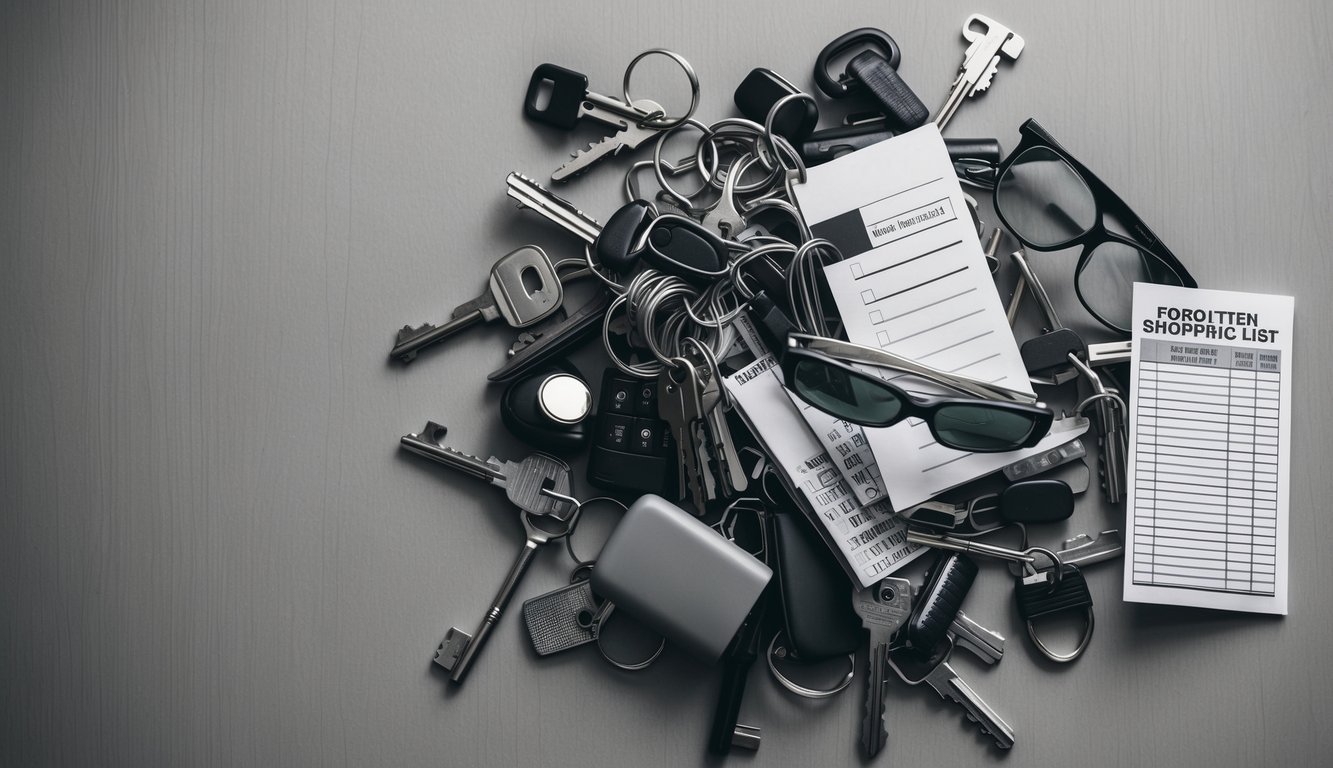PsychNewsDaily Publishers
100 Summit Drive
Burlington, MA, 01803
Telephone: (320) 349-2484
PsychNewsDaily Publishers
100 Summit Drive
Burlington, MA, 01803
Telephone: (320) 349-2484
Memory loss encompasses various types, including acute, short-term, long-term, and progressive, often influenced by factors like aging, medical conditions, and psychological issues.

Memory loss can affect cognitive function, ranging from minor forgetfulness to significant impairment. Its impact varies across daily life and relationships depending on its type and underlying causes.
Acute memory loss arises suddenly and is often temporary, commonly caused by head trauma, certain medications, or alcohol intoxication.
Short-term memory loss hinders the ability to hold onto recent information, leading individuals to misplace items or have difficulty remembering new names.
Long-term memory loss affects the ability to recall past events and learned information, which can be especially distressing as it may erase treasured memories.
Progressive memory loss deteriorates over time and is frequently related to conditions such as Alzheimer’s disease.
Amnesia represents a severe type of memory loss, affecting the formation of new memories, the recall of existing ones, or both. Some amnesia cases are temporary, while others can be permanent.
Everyday forgetfulness is often attributed to stress and insufficient sleep. An overloaded brain may struggle to effectively encode new information.
Aging is another natural factor influencing memory; older adults may experience mild declines in the speed of recall and short-term memory capacity.
Various medical conditions can lead to more serious memory problems, including:
Specific medications, especially those that alter brain chemistry, may also contribute to memory loss as a side effect. Additionally, excessive alcohol intake can impair memory function in both the short and long term.
Psychological issues like depression and anxiety can significantly affect memory performance by compromising concentration and the brain’s information processing abilities.

The decline in memory is a multifaceted process influenced by various factors. The changes in memory associated with aging differ markedly from cognitive impairments related to dementia. Recognizing these differences is essential for accurate diagnosis and suitable management.
As individuals grow older, some changes in memory are to be expected. Older adults may face occasional forgetfulness or take longer to recall information. These normal age-related shifts in memory usually do not disrupt daily life.
Cognitive impairment surpasses typical aging effects. Mild cognitive impairment (MCI) sits between common age-related changes and dementia. Individuals with MCI may exhibit noticeable memory issues, yet can still carry out daily tasks independently.
Indicators of cognitive decline include:
Dementia unfolds through several stages, each marked by an increase in cognitive decline and functional impairment.
In the early stages of dementia, individuals might find complex tasks challenging but can still manage basic daily activities.
During the middle stages of dementia, memory loss intensifies. Individuals may struggle to recognize family and friends, experience disorientation, and need help with daily tasks.
The late stage of dementia is characterized by severe cognitive decline, where individuals may lose effective communication abilities and become reliant on others for all aspects of care. At this stage, memory impairment is profound, affecting both short-term and long-term memory.
Alzheimer’s disease is the most prevalent form of dementia, making up 60-80% of cases. It primarily targets memory, thinking, and behavior, with early signs including difficulty recalling recent conversations or events.
Other forms of dementia include:
Each type of dementia has unique characteristics, but all share progressive cognitive decline and memory loss. Early detection is vital for effective management and care planning.
Ongoing research aims to identify potential treatments and preventive strategies for various forms of dementia. While there is currently no cure, some lifestyle choices may help mitigate the risk of cognitive decline as one ages.

Memory is influenced by a range of psychological factors. Stress, anxiety, and depression can significantly hinder cognitive function and affect the formation and retrieval of memories.
Stress and anxiety are significant contributors to memory challenges. High stress levels lead to the release of cortisol, which can impede the brain’s ability to create and access memories.
Prolonged stress may result in:
Anxiety can have comparable effects, frequently causing racing thoughts that distract from focusing and retaining information. Severe anxiety may lead to panic attacks, further disrupting cognitive processes.
To reduce these impacts, individuals might find stress-reduction techniques like meditation, deep breathing exercises, or consistent physical activity helpful. Consulting a mental health professional can also aid in managing stress and anxiety levels.
Depression can have a marked effect on memory and cognitive abilities. Those experiencing depression often report challenges with focus, decision-making, and memory recall.
Common memory-related difficulties linked to depression include:
These memory difficulties can intensify feelings of inadequacy and frustration, potentially exacerbating depression symptoms.
Importantly, memory issues stemming from depression are often temporary and may improve with appropriate treatment.
Healthcare professionals might suggest a blend of therapy and medication to address depressive symptoms and related memory concerns. Cognitive Behavioral Therapy (CBT) has exhibited promise in enhancing cognitive function for individuals with depression.

Accurate diagnosis and management of memory loss require a thorough evaluation by healthcare professionals and personalized treatment strategies. Early intervention is essential to address underlying issues and optimize outcomes.
Healthcare professionals are crucial in diagnosing memory loss. The process often commences with an extensive medical history and physical examination.
Cognitive evaluations are performed to assess memory, attention, and problem-solving abilities.
Neurological assessments may be conducted to examine reflexes, coordination, and sensory function, while blood tests can identify health conditions that might contribute to cognitive decline.
Brain imaging techniques, such as MRI or CT scans, may be used to spot structural irregularities. In some instances, neuropsychological testing provides a more detailed assessment of cognitive functions.
Healthcare providers also check for possible medication side effects that could affect memory, considering factors like depression, sleep disorders, and nutritional deficiencies.
Addressing memory loss depends on the underlying causes. Cognitive stimulation therapy can aid in preserving mental function and enhancing the quality of life. This therapy may involve memory exercises, puzzles, and social interactions.
Medications might be prescribed to target specific issues. For instance, cholinesterase inhibitors or memantine may be recommended to slow cognitive decline in Alzheimer’s patients. If depression is influencing memory problems, antidepressants may also be suggested.
Lifestyle changes are frequently advised, including regular physical activity, a diet rich in omega-3 fatty acids, sufficient sleep, and techniques to manage stress.
For some individuals, occupational therapy can aid in developing strategies to cope with memory deficits. Support groups also offer emotional support and practical advice for both patients and caregivers.